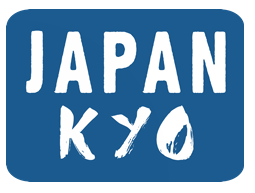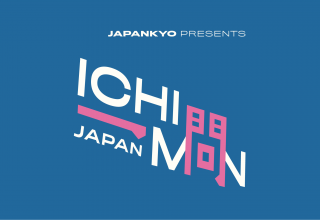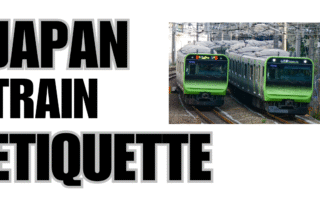
This episode was originally released as episode 3 of the Ichimon Japan podcast.
Today’s Question
On this episode of Ichimon Japan we ask: Why do Japanese train stations do that?
Topics Discussed
- The train system in rural areas versus urban areas in Japan
- Trains in Kagoshima and Ishikawa
- What a Wanmanressha (one man trains) is
- Unmanned rural train stations
- Why Japanese train stations use cute songs to indicate a train is about to depart
- Hasshamero (train departure melodies)
- The use of Nogizaka46’s song “Kimi no Na wa Kibō” as a train departure melody
- The logic behind train departure melodies
- A brief history of train departure melodies in Japan
- How the song “Yappa Sukiyanen” by Uashiki Takajin was adapted into a train departure melody after his death in 2014
- How Osaka locals prefer to use “Umeda” when referring the the area in and around JR Osaka Station
- Why there are lines and numbers on the train platforms
- How to line up when waiting for a train
- Women only train cars
- The use of high-pitched noises (17 khz) to disperse people loitering at train stations in Japan
- Standing versus walking on escalators
- How Japanese railway companies are trying to get people to only walk on escalators
- Japanese people’s reluctance to stop walking on escalators
- Why standing on escalators can be faster than walking
- Why Japanese train stations use blue LED lights on platforms
- The claim that blue LED lights are extremely effective at preventing suicide
- The role of seken no me (世間の目, the public gaze/the eye of society) on Japanese trains and at Japanese train stations
- Train etiquette
- The claim that cell phones interfere with pacemakers
- Putting on makeup on Japanese trains
- How there’s a part-time job in Nagoya where people stand on the escalator all day in order to stop people from walking on escalators
- And more!
Listen to Ichimon Japan on
Apple Podcasts Google Podcasts Stitcher Spotify PodBean RSS
Sources, Links, Videos, Etc.
You can support the show by donating via Venmo or Paypal.
You can check out the Citylab article that is mentioned multiple times during this episode via the link below.
As mentioned in this episode, Nogizaka Station on the Chiyoda Subway Line uses an adapted version of the Noguzaka46 song “Kimi no Na wa Kibō” (English translation: Your Name is Hope). You can listen to the original version of “Kimi no Na wa Kibō” via the YouTube video below.
Another song mentioned in this episode is “Yappa Sukiyanen” by Yashiki Takajin. Following the death of Takajin in 2014, an adapted version of this song was used for a period of time as the departure melody of JR Osaka Station.
The video below explores the question of whetherit is faster to stand or walk on an escalator. It finds that in theory about 80 people per minute can use an escalator when one side is reserved for walking. However, up to 112 people can use an escalator when people stand on both sides.
You can check out the 2012 study that sparked the “blue light prevents suicide” craze via the link below. Note: many articles written after the publication of this study cite a 2013 study. However, this appears to be the same study and it is dated as 2012. It is possible that this is a preliminary version.
Numerous researchers have looked into the results of the 2012/2013 blue light study since it was originally plublished. In doing so, they have called into question its results. One such researcher is Masao Ichikawa of the University of Tsukuba. You can read his 2014 follow-up study via the link below.
Here is the 2019 BBC article mentioned during this episode that helpsput into doubt the idea that blue lights prevent suicide.
If you would like to check out episode 31 of the Japan Station podcast, which focuses on the skakuhachi, check out the link below.
If you want to learn even more about Japanese tains, then you should check out the Japankyo article below.
We Want Your Questions
Is there something about Japan that confuses you? Is there something about Japanese culture that you would like to learn more about? Is there something in Japanese history that you would like us to explain? We’re always looking for new questions about Japan to answer, so if you have one, please send it to ichimon@japankyo.com.
Special Thanks
Opening/Closing Theme: Produced by Apol (YouTube, Twitter, Facebook, Fiverr)
Ichimon Japan cover art: Produced by Erik R.
Follow Japankyo on Social Media














